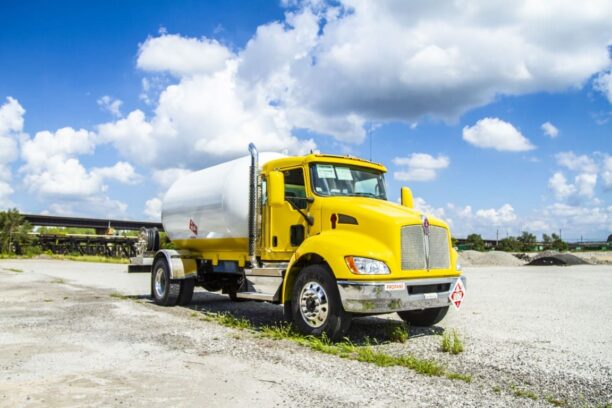Streamlining Propane Delivery with Automation

Automation is transforming the propane industry, serving to enhance both efficiency and accuracy in deliveries. This article delves into how modern technologies are reshaping propane distribution, making it more seamless and cost-effective for businesses and consumers alike.
Automated Routing Systems
One of the key innovations in the automation of propane deliveries is the use of advanced routing software. These systems optimize delivery routes by analyzing variables such as road conditions, traffic patterns, and weather forecasts. By determining the most efficient routes, companies can reduce travel time and fuel consumption, leading to significant cost savings and faster delivery times.
Inventory Management Solutions
Automated inventory management systems are crucial for maintaining the balance between supply and demand. These systems track propane levels in real time, using sensors and IoT technology to monitor tank levels across various locations. This data allows propane providers to more accurately schedule refills, preventing shortages and reducing the risk of overstocking.
Customer Management Software
Automation extends to customer relationship management (CRM) systems, which streamline interactions between propane suppliers and their clients. These platforms offer features like automatic billing, order tracking, and service scheduling, enhancing customer satisfaction through timely and transparent communications.
Safety Enhancements
Automation also plays a pivotal role in enhancing safety in propane deliveries. Automated systems can detect leaks and other potential hazards, providing real-time alerts to both the service provider and the customer. This immediate response capability helps prevent accidents and ensures compliance with safety regulations.
Environmental Impact
By optimizing delivery routes and reducing the need for excess trips, automation contributes to a lower carbon footprint for propane delivery trucks. More efficient fuel use and reduced idle time contribute to fewer emissions, aligning with environmental sustainability goals.
Predictive Maintenance
Another benefit of automation is predictive maintenance, which uses data analytics to anticipate equipment failures before they occur. For propane delivery vehicles, this means routine maintenance can be scheduled based on actual vehicle usage patterns and diagnostic data, rather than on fixed intervals. This approach prevents breakdowns and extends the lifespan of delivery equipment.
Integration with Renewable Energy Sources
As the propane industry begins to integrate more renewable energy sources, automation provides the framework to manage this transition smoothly. Automated systems can handle the complexities of scheduling and logistics when combining traditional and renewable propane sources, ensuring reliable delivery regardless of the energy mix.
Impact on Propane Businesses
For propane businesses, adopting automation technologies like Tank Spotter and other advanced systems can significantly improve operational efficiency and customer service. By leveraging these tools, companies can enhance inventory management, optimize delivery routes, and offer better safety and environmental performance. This not only drives business growth but also positions companies as leaders in modern energy distribution logistics.
Automation in propane deliveries, supported by tools like Tank Spotter, offers a range of benefits including increased efficiency, improved safety, and reduced environmental impact. As technology continues to evolve, the propane industry is well-positioned to leverage these advancements, setting a standard for modern energy distribution logistics. This shift towards automated systems offers promising prospects for growth and innovation in the propane sector.














